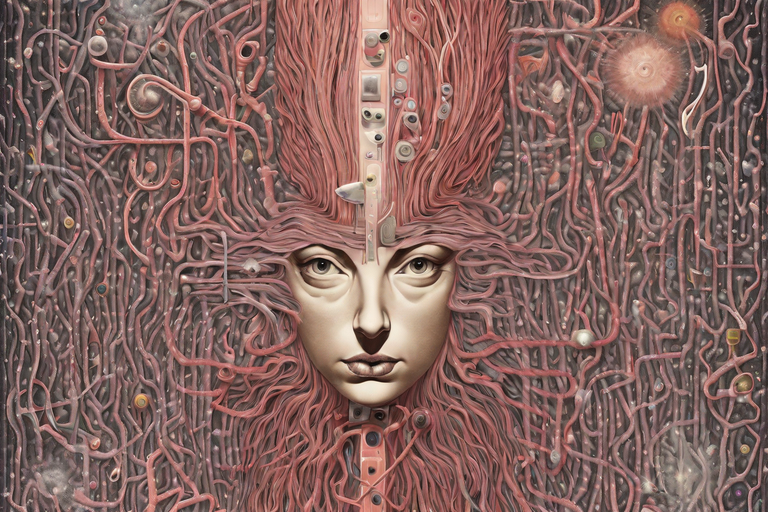When we’re having a bad time then this – as Greg Tucker says – proves (apparently quite definitively, too) that we exist and so this is a good thing. It’s a good thing because we all want to exist. Of course, if you could prove that you exist by having a good time instead then this would be even better, but that plan never seems to work out so well! Having a good time all of the time is – needless to say – one of life’s impossibilities.
Having a bad time is the old reliable since – as everyone knows – it just isn’t possible to have a good time all of the time. We are all however very skilled in the art of being able to look at things in a way that cause us to feel bad, even when even though there’s no real reason for us to see things this way. We can find fault with anything when it comes down to it. Or if ‘finding fault’ isn’t our thing, then we can worry about anything, even though when we don’t (of course) really need to. We can pull dramas out of thin air.
It always sounds unfair to be saying that people have a secret motivation for going through their neurotic suffering – it definitely sounds rather unsympathetic! We can (and do) all too easily turn this idea into blaming because of the very big implication that we could drop all of this ‘neurotic suffering business’ if we wanted to, but that we perversely choose to hang onto it all the same. This implication is completely missing the mark however – there’s no ‘choice’ involved in this at all. No one has any choice in this matter, that’s what’s so hard to understand. What is so hard to understand is that we have the illusion of choice which isn’t really choice in reality because it leads nowhere. The only type of choice we have here is Hobson’s choice.
It’s not as if we know that we are engineering suffering for ourselves so that the ego-construct can maintain its integrity. This is the hardest thing in the world to see – anything is easier to understand this. In order for us to understand that our secret reason for getting embroiled in the endless complications of neurosis we would first have to do understand that we aren’t the ego-construct and that the ego-construct doesn’t (and couldn’t) exist anyway, and the obstacle that stands in the way of this insight is well-nigh insurmountable. The ‘obstacle’ that stands in the way of us having this insight is our own virtually infinite resistance to seeing it. The raison d’être of the ego-construct is to avoid seeing that it is the ego-construct – it will do anything rather than see this! The first rule of the game is that we should not know that we are playing the game.
The Delphic Maxim states ‘Know thyself’ and this means ‘seeing that we aren’t who the world says we are’ (or that ‘we aren’t who we say we are’) and this isn’t as straightforward as it sounds. This isn’t the same as ‘Brush your teeth before you go to bed’ or ‘Be nice to people’ or “Don’t covet your neighbour’s ass’ – the ancient Apollonian edict of ‘Know Thyself’ is the trickiest instruction or admonition there ever could be. Nothing is more perplexing than this.
Instead of giving us a whole bunch of ‘Moses-style’ laws to follow, nicely written on a convenient tablet, the Delphic maxim puts the responsibility right back on us; it’s us who have to ‘know ourselves’. No one else can do it for us. And what’s more, it just so happens that everyone around us wants very much to do this for us (i.e. assign an identity), but if we go along with this external-mechanical determination of ‘who or what we are’ then we will be sent down the wrong road; if we listen to other people we will be sucked deeper and deeper into deceptive Realm of False Identity, otherwise known as ‘everyday life’. The great all-determining current of this world doesn’t pull us in the direction of ‘taking responsibility for knowing ourselves’ but in quite the opposite direction – it takes us in the direction of handing this matter over to the ‘external authority’ which is the collective or generic mind.
We don’t know that ‘the ego construct doesn’t exist and that we aren’t it’ and it is because we don’t know that we have total allegiance to that construct. Because we do have total allegiance to this cause we are obliged to do everything we can to prove to ourselves that the construct is real (which is to say, to prove to ourselves that ‘the make-believe thing isn’t make-believe’). We are obliged to do this without ever being able to see that this is what we are doing; when we engineer suffering for ourselves in order to keep on reaffirming the shaky identity of who we think we are this is something that we – under normal situations – will never have any insight into. To say that we enacting the neurosis ‘on purpose’ isn’t the way it is at all therefore. Nothing could be further from the truth – we’re trying to help ourselves, but it just so happens that we’re seeing everything backwards so that when we try to help ourselves we just make matters worse. We cut off our air supply even more with our thrashing around…
There is a motivational system in operation and that motivational system has two levels: the overt level is where we pursue legitimate goals, goals that we ourselves want to attain, and the covert level is where we are compelled to do whatever it takes to keep convincing ourselves that the embattled self-concept exists. This is the ‘covert’ level because at the same time as being compelled to do whatever it takes to affirm the existence of the self, we are also compelled to keep the details of this agenda completely hidden from ourselves. All of that stuff is kept locked up in a secret cupboard that must never be opened.
To be very effectively prevented from seeing the truth about ourselves is to be compelled to do things on a false basis. If what I understand to be true is controlled by some ‘external authority’ then my actions serve this authority and have the origin in it. Everything we know is determined by what we don’t know (and don’t know we don’t know) and so what comes out of the box is not ‘volitional activity’ but the complete antithesis of this. As David Bohm says, the system of thought tells us to what to do, how we feel about things, what our goals are, etc, and it then tells us that the thoughts and feelings and volitions we experience are our very own (and therefore by implication that they have most definitely not been imposed upon us by some external mechanical system).
We live a curiously ‘managed’ existence therefore; we might fairly easily see that we are managed by society and by society’s institutions, but it is far harder to see how we ‘manage ourselves without knowing that we are’ and how we keep on playing this type of ‘double game’ for most of our lives. The only ‘freedom’ we have in this tortuous game is the freedom to pursue the goals that have been provided for us whilst at the same time imagining that this thoroughly undignified business equals ‘free will’. This so-called ‘freedom’ doesn’t benefit us at all therefore – just giving more and more energy to the freedom-denying game the whole time, and thereby ‘setting ourselves up’ for more and more restriction in the future. The restriction reaffirms our definite identity but it also brings endless suffering upon our heads. To have our ‘definite identity’ made more real for us is the very root of all neurotic suffering! To identify is to suffer…
Almost all of our energy goes into feeding the system that compels us to identify with a construct that isn’t us, an ‘ill-starred identification’ which necessitates us colluding against ourselves on a full-time basis. We end up in the position where we are obliged to plot against ourselves to convince ourselves that we are this pain-accruing self-construct which doesn’t exist anyway but which nevertheless demands our total unquestioning 24/7 allegiance. We are therefore in the situation where we have total unquestioning allegiance to a mind-created construct that has no free will and no possibilities and which can do nothing else other than pull us deeper and deeper into a world that is made up of futile suffering – since futile suffering is what the I-concept needs in order to be able to keep on validating itself. Of all the positions we might end up in, this has got to take the biscuit, therefore! What could possibly beat this for an undesirable scenario?
Image – wallpaperflare.com






